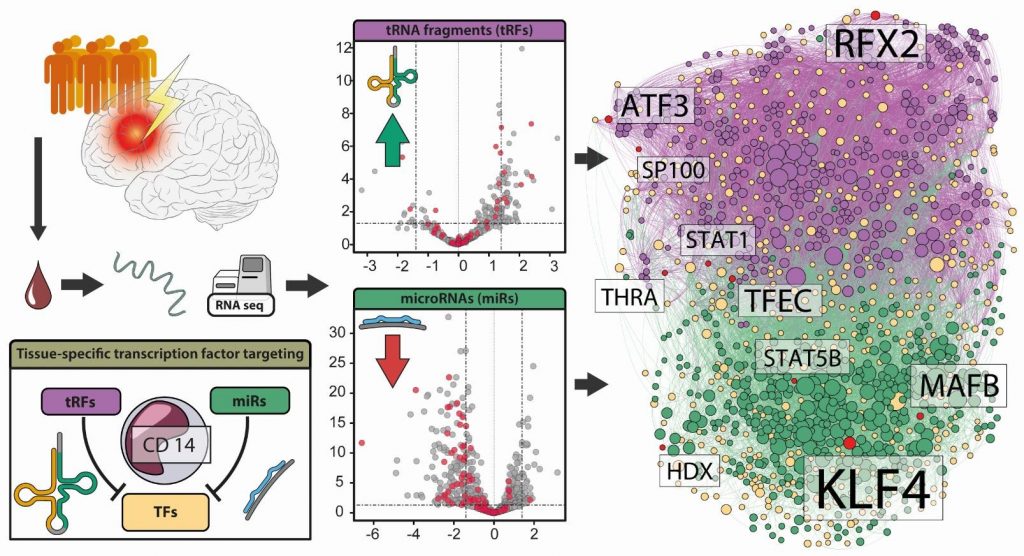Stroke, resulting from either bleeding (hemorrhagic stroke) or a blockage of an artery in the brain (ischemic stroke) is the second most frequent cause of death worldwide and a major cause of disability. Most stroke cases are of ischemic etiology, with limited treatment options, which may only help when administered within a short time window after the initial brain injury. Multiple therapeutic approaches directly oriented at saving neurons from cellular death have been lost in translation from animal models to human studies. Hence, researchers exploring new treatment targets in stroke often look into human samples beyond the brain. Brain injury triggers extensive brain-immune signaling, with acetylcholine systemically suppressing immune cells, which in turn leads to increased susceptibility to infections, impeding recovery. In our study, we discovered a “changing of the guards” between microRNAs (miRs) and fragments of transfer RNAs (tRFs) targeting acetylcholine-related transcripts in blood cells from ischemic stroke patients 2 days after the event. tRFs were previously considered to be merely debris of mature transfer RNAs, which deliver specific amino acids to the growing protein chain during mRNA translation. We found an enrichment of acetylcholine-related mRNAs in one type of immune cells, CD14-positive monocytes, which we demonstrated to be regulated by the stroke-perturbed tRFs and miRs, modulating their inflammatory reactions. In this era of RNA therapeutics, tRFs may become future drug targets in stroke and other diseases of the brain and the immune system.



